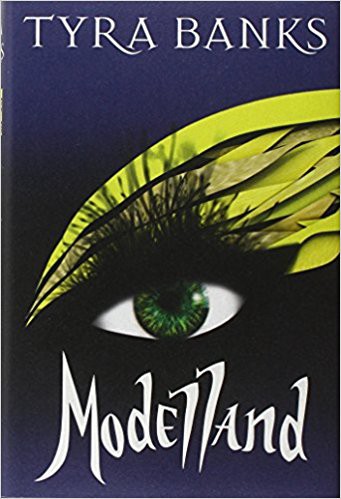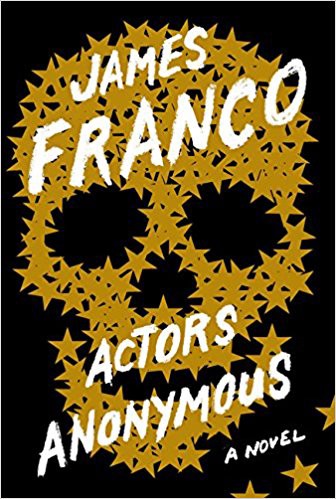Reading Lists
The Best Thing About Celebrity Novels Is Scathingly Bad Reviews
We’ve rounded up the most blistering pans of actors, singers, and models who moonlight as novelists

Sean Penn’s novel Bob Honey Who Just Do Stuff [sic] is the latest clarion call for book reviewers everywhere to sharpen their literary tongues and deliver the best in cruel, cold, criticism. Claire Fallon writing for The Huffington Post, declared Penn’s novel “an exercise in ass-showing, a 160-page self-own,” and Sian Cann for The Guardian calls it “repellant and stupid on so many levels.” So why on earth do celebrities keep writing (read: hiring ghost writers to write) these conduits for critical trash-talk? There have got to be better ways to get publicity. But thank goodness they do, because we get a HUGE kick out of reading serious literary folk rage at the drivel these celebrity books often turn out to be. Maybe it’s literary purism, but more likely it’s just the human drive to see successful people taken down a peg. (In fact, we can admit to a small frisson of disappointment in the rare event that a celebrity book is good.)

In honor of Sean Penn’s “riddle wrapped in an enigma and cloaked in crazy” (Jeff Giles, The New York Times) we’ve collected six other celebrity authors flirting with the career change, and the book reviewers who shut them down.

Uncommon Type by Tom Hanks
“With one exception, Tom Hanks’s debut collection of short stories could be the work of Forrest Gump himself … Hanks’s stories — Alan Bean Plus Four aside — are forgettable, middle-of-the-road and touched by the special banality of mere competence.” — The Guardian

Holy Cow by David Duchovny
“David Duchovny is, by all accounts, an intelligent man. He has a master’s degree from Yale, where he studied under Harold Bloom. He is a talented actor, and he clearly feels deeply, as he should, about animal welfare. But Holy Cow is one of the most half-baked, phoned-in books I’ve ever read, and it’s hard to look at it as anything but a vanity project. Of course, his fans want to believe. When it comes to this novel, they shouldn’t.” — Michael Schaub, NPR

Modelland by Tyra Banks
“You could say it’s a book about friends, fashion, and growing up. But it would be more accurate to say this book is about seeing how crazy a thing can be put into print before the ink just refuses to adhere to paper.” — Peter Derek, Lit Reactor

List of the Lost by Morrissey
“List of the Lost is the kind of piece that, even in draft form, had to make early readers squirm — those unfortunate friends, acquaintances, editors who had to read this turd knowing that Morrissey’s looming follow-up question was in their future: ‘So, what’d you think?’ My guess is, their opinions — honest or not — didn’t make much of a difference: List of the Lost reads like a book untouched by a caring editor’s hand. And that’s how the book’s presented, too: the flimsy, thin paperback feels un-fussed over and galley-esque, as if the publisher was as eager to move on as future readers. Because thanks to our novelist — ‘intimate and indiscreet’ with ‘pompous, prophetic airs’ — we’re left with a piece that will do anything but delight readers.” —Tyler R. Kane, Paste Magazine

Actors Anonymous by James Franco
“‘Excremental’, in fact, is an appropriate word for this work of fiction. I think Franco may have anticipated the adjective, such is his delight in having shitty things, literally, happen to his characters. (In searching the ebook for one quotation I found that the word ‘shit’ appears on 66 of its 304 pages). One character, or a character’s character — the levels of metafictionality become too wearisome to plot — is nicknamed ‘Diarrhea’ due to an explosive bowel movement. The Actor, as our protagonist is now titled, nonetheless has sex with her, as well as with her ‘smaller and less attractive friend’ whom he nicknames ‘Cunty’.” — Hermione Hoby, The Guardian

Elixir by Hilary Duff
While we intended to stick with published reviews, this Amazon review that posits Hilary Duff’s novel leading to public failure and eventual suicide was too wild not to include.
“You see this book while at the grocery shop. You pick it up not because it looks interesting, but because it has a recognizable name on it. You think whether this Duff character has any talent. So you read the back of the synopsis. But as you’re doing that your ice cream in your arm starts to melt. You sweep it up into your cart and get to the check out. The cashier sees your novel and gives you a nod. You think that’s a good sign. So you take it home, and when you have some freedom, you check it out. It’s bad. So bad that you throw up. Your puke goes all over your bed and you don’t wonder why. You leave the room to get paper towers, and your dog goes in and licks it up before you return. You curse the heavens, then go to bed. You don’t like it. You put your Elixir book up for sale on eBay, but it only sells for a penny and the cost of shipping. You regret your decision. You light up and cigarette and accidentally burn your house down when you go to sleep. You regret buying that Duff novel. You try to sue her, but your case is thrown out, and you’re seen as crazy. Now living with your mother in law, without nothing on the horizon, you end it all.” — Harry, Amazon










